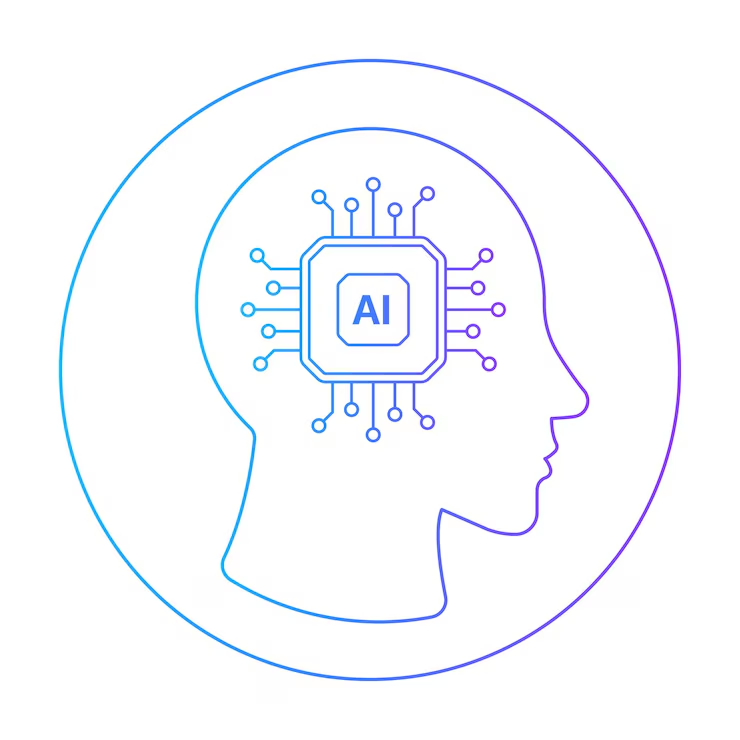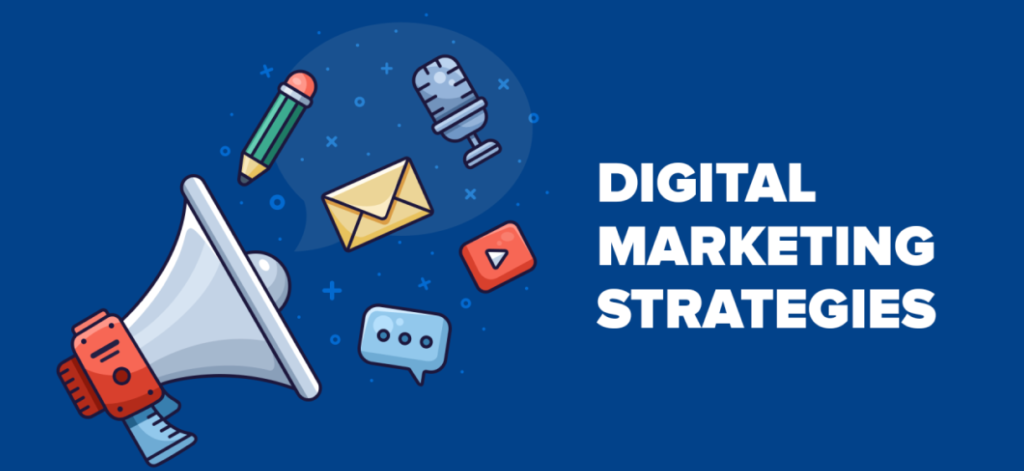Introduction
Artificial Intelligence (AI) has revolutionized digital marketing, transforming how businesses engage with customers, analyze data, and automate processes. AI-powered tools enable marketers to create personalized experiences, optimize ad campaigns, and enhance decision-making. This guide explores how AI is shaping digital marketing and how you can leverage it for business growth.
1. What is AI in Digital Marketing?
AI in digital marketing refers to the use of machine learning, natural language processing (NLP), computer vision, and automation to enhance marketing strategies. It helps brands analyze consumer behavior, create personalized content, automate repetitive tasks, and improve customer interactions.
Key AI Technologies in Digital Marketing:
- Machine Learning (ML): Enables algorithms to learn from data and make predictions.
- Natural Language Processing (NLP): Helps AI understand and generate human-like text.
- Chatbots & Virtual Assistants: Provide automated customer support.
- Computer Vision: Enhances image and video recognition for marketing purposes.
- Predictive Analytics: Forecasts trends and customer behaviors.
2. Benefits of AI in Digital Marketing
AI-driven marketing provides several advantages:
a. Personalization at Scale
AI enables businesses to deliver hyper-personalized experiences by analyzing customer data and predicting preferences. Netflix, Amazon, and Spotify use AI to recommend products, movies, and music based on user behavior.
b. Improved Customer Engagement
Chatbots and AI-driven assistants provide 24/7 customer support, answer queries, and enhance user experience. Platforms like WhatsApp and Messenger integrate AI-powered bots to interact with customers.
c. Data-Driven Decision Making
AI tools analyze vast amounts of data to extract valuable insights, allowing marketers to optimize strategies based on real-time trends.
d. Enhanced Content Creation & Optimization
AI generates high-quality content, from blog posts to ad copy. Tools like OpenAI’s ChatGPT and Jasper help marketers create engaging content quickly.
e. Better Ad Targeting
AI-powered platforms like Google Ads and Meta Ads optimize campaigns by identifying the right audience, improving conversions, and reducing ad spend waste.
3. AI Applications in Digital Marketing
a. AI-Powered Chatbots & Virtual Assistants
AI chatbots automate customer support, handle inquiries, and provide personalized recommendations. Examples include:
- Drift: AI-powered conversational marketing.
- ChatGPT-powered bots: Enhancing customer interactions.
- Google’s Bard & Apple’s Siri: AI-driven virtual assistants.
b. AI in Email Marketing
AI optimizes subject lines, sending times, and personalized content. Platforms like Mailchimp and HubSpot use AI to boost open and click-through rates.
c. AI in Content Creation & SEO
AI tools assist in content writing, keyword research, and SEO optimization.
- Jasper & Copy.ai: Generate high-quality blog content.
- Surfer SEO: Optimizes content for search engines.
- Frase & Clearscope: Improve keyword strategies.
d. AI in Social Media Marketing
AI analyzes user behavior, schedules posts, and recommends the best engagement strategies.
- Hootsuite & Buffer: AI-driven social media automation.
- Canva & Lumen5: AI-powered content creation tools.
e. AI in PPC & Programmatic Advertising
AI optimizes ad bidding, audience targeting, and ad placements.
- Google Performance Max: AI-powered ad campaigns.
- Facebook AI Ads: Uses machine learning for personalized targeting.
f. AI in Visual & Voice Search
AI enhances visual and voice search capabilities.
- Google Lens & Pinterest Lens: AI-powered image recognition.
- Alexa & Google Assistant: Voice search optimization.
4. AI-Driven Marketing Strategies for 2024
a. AI-Powered Predictive Analytics
AI predicts future trends, helping brands develop proactive marketing strategies.
b. Hyper-Personalization in Marketing
AI customizes user experiences based on real-time data, making campaigns more effective.
c. AI-Generated Video Marketing
AI tools like Synthesia create AI-generated videos, saving time and costs.
d. Voice & Conversational AI
Brands optimize for voice search and AI-driven conversations to engage customers.
5. Challenges & Ethical Considerations of AI in Marketing
a. Data Privacy & Security
AI collects vast user data, raising privacy concerns. Businesses must comply with GDPR and data protection laws.
b. Bias in AI Algorithms
AI can inherit biases from training data, affecting decision-making. Ethical AI practices are essential.
c. Dependence on AI & Job Displacement
While AI enhances efficiency, over-reliance can lead to a loss of human creativity. The marketing industry must balance automation with human insights.
6. Future of AI in Digital Marketing
AI will continue to evolve, with advancements in deep learning, personalized AI assistants, and AI-generated content shaping the future of digital marketing.
Key Trends to Watch:
- AI-driven metaverse marketing.
- Autonomous AI marketing assistants.
- AI in influencer marketing.
- Advanced AI for real-time decision-making.
Conclusion
AI is transforming digital marketing by enhancing personalization, automation, and data-driven insights. Marketers must embrace AI to stay competitive and create impactful campaigns. The future of AI in marketing is promising, with endless possibilities for innovation.
Are you ready to leverage AI in your digital marketing strategy? 🚀


